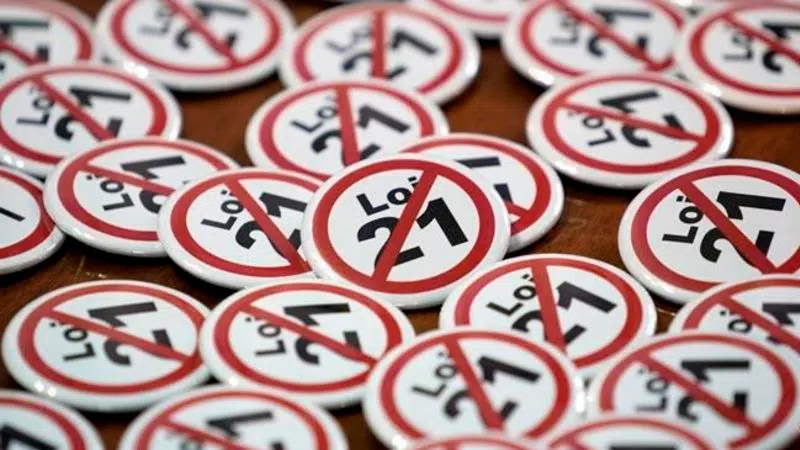
Opposition campaign launched to fight Quebec’s religious symbols law
MONTREAL — People from various faiths gathered in a downtown Montreal church Thursday to declare their intention to keep battling the province’s secularism law, which prohibits some public servants from wearing religious symbols on the job.
The law is already facing a court challenge, but on Thursday opponents launching the “No to Bill 21” campaign opted for another tactic — buttons with a red line drawn through the words “Bill 21.” They are also calling on people to wear the religious symbol of their choice, even if they don’t normally wear one.
Ehab Lotayef, a Muslim and one of the campaign co-ordinators, wore a Jewish kippa Thursday and plans to continue wearing it throughout the month.
The provincial law, which came into effect in June, bans public sector workers deemed to be in positions of authority, including teachers, police officers, judges and prison guards, from wearing religious symbols. A grandfather clause exempts those hired before the bill was tabled.


